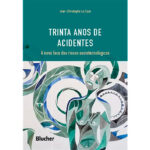By Carla Kalline Alves Cartaxo Freitas, Assistant Professor, Universidade Federal de Sergipe, Lagarto, SE, Brazil
The educative intervention, which used the educational therapeutic method, positively influenced the knowledge, attitudes, and practices of children with respect to the prevention of traffic accidents. This was the conclusion of researchers from the Universidade Federal de Sergipe, in Lagarto, Sergipe, who assessed the outcome of a traffic educational program for children from the 3rd and 5th grades of elementary school from two public schools in Northeastern Brazil, in the second half of 2014. The article “Educational program for the promotion of knowledge, attitudes and preventive practices for children in relation to traffic accidents: experimental study”, published in Revista Paulista de Pediatria (Vol. 37, No. 4), evaluated a total of 173 children randomly distributed in the experimental group (EG) and control group (CG).
The educative intervention was performed in the EG using the educational therapeutic method, being planned and organized in Portugal with the participation of the creator of the method (BRASIL, 1997), which provides numerous techniques and has been studied and implemented in several actions with children in the school environment, proving to be effective. Most of the children assessed declared having participated in some educational activity for the prevention of traffic accidents before the intervention performed in this study. For this reason, the researchers believe that the level of knowledge, attitudes, and preventive practices did not differ between the EG and CG in the initial evaluation. However, one month after the completion of the educational program, the knowledge in the EG improved significantly. Attitudes and preventive practices were also higher among children from the EG, but without a significant difference when compared to the CG. According to the researchers, the limitations of the study included the lack of follow-up of the children in subsequent months, in order to confirm if the educational activity would permanently influence the variables evaluated. Nevertheless, we can infer that the educative intervention positively affected the knowledge, attitudes, and practices of children from the EG regarding the prevention of traffic accidents.
According to the Article 76 of the New Brazilian Traffic Code, traffic education must be promoted in pre-school, elementary school, and high school through coordinated actions between agencies and entities of the National Traffic and Education System in the country, Federal District, states, and cities, in their respective areas of activity (RODRIGUES, 2000). The researchers emphasized that they found no difficulties in implementing the method in the Brazilian context, and that its use is essential to promote a culture of preventive education about traffic accidents among children. The researchers believe that the method can be used in new educational contexts, allowing the immersion in the local culture, while creating a space for dialog and enlightenment that favors the exchange of knowledge among those involved. Therefore, they recommend periodic training on the use of the educational therapeutic method for the health professionals involved in the education of children to promote preventive behavior toward traffic.
References
BRASIL. Presidência da República. Lei nº 9.503, de 23 de setembro de 1997. Institui o Código de Trânsito Brasileiro. Diário Oficial da União, Brasília, 1997. Available from: http://www.planalto.gov.br/Ccivil_03/leis/L9503.htm
RODRIGUES, M.A. Programa de Liberación Creativa com Imagen para alumnos com dificultades de aprendizaje. Siglo Cero [online]. 2000, vol. 31, np. 187, pp. 18-22, ISSN: 0210-1696 [viewed 21 November 2019]. Available from: https://sid.usal.es/5038/8-2-6
To read the article, access it
FREITAS, C.K.A.C., et al. Educational program for the promotion of knowledge, attitudes and preventive practices for children in relation to traffic accidents: experimental study. Rev. paul. pediatr. [online]. 2019, vol. 37, no. 4, pp. 458-464, ISSN: 0103-0582 [viewed 21 November 2019]. DOI: 10.1590/1984-0462/;2019;37;4;00012. Available from: http://ref.scielo.org/8mywnp
External link
Revista Paulista de Pediatria – RPP <http://www.scielo.br/rpp>
Como citar este post [ISO 690/2010]:


















Recent Comments